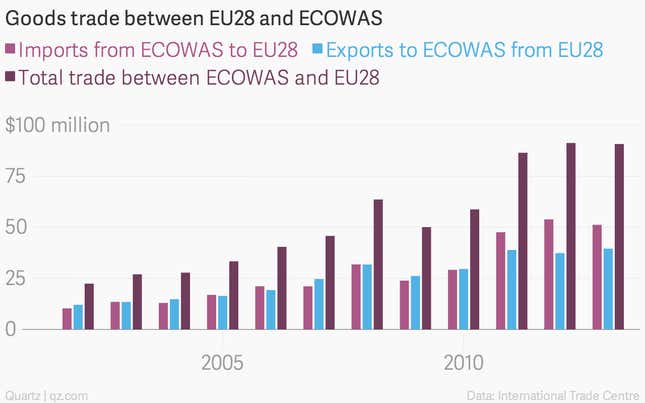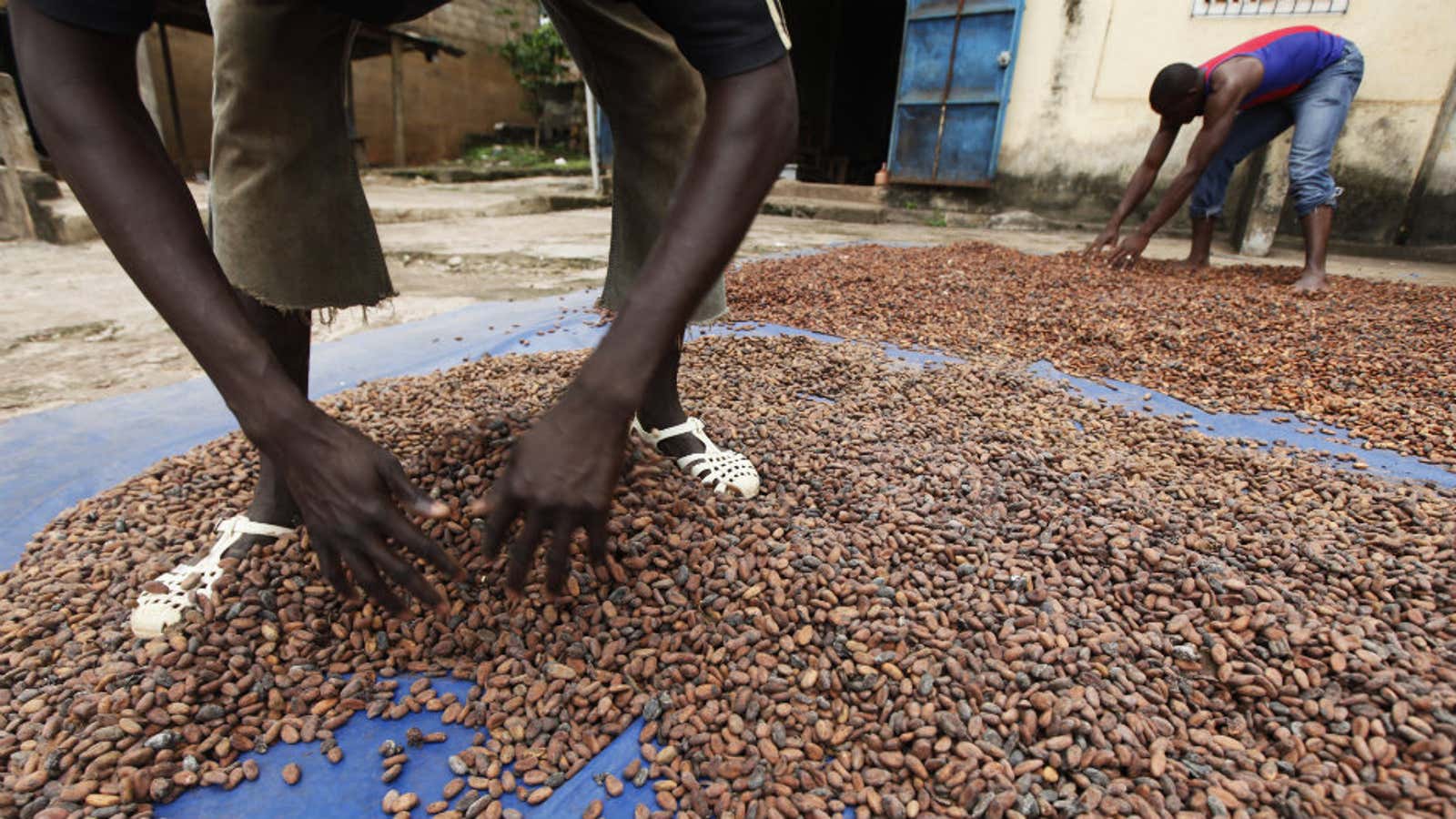West African leaders are about to sign a free trade agreement with the European Union. The EU insists it will spur growth, but it’s more geared towards giving Europe access to the region’s 300 million consumers. It will make sure West Africa develops just enough to buy more stuff from Europe, but not enough to do any manufacturing of its own.
Groups like Kofi Annan’s Africa Progress Panel (pdf) and the Manufacturers’ Association of Nigeria say a flood of imports from Europe, West Africa’s biggest trading partner, could completely crush what little industry there is in the region. They raise the spectre of shuttered factories, abandoned farms, massive unemployment and perpetually poor countries trapped exporting a dwindling stock of natural resources like gold, oil and cocoa. It sounds like an exaggeration, but it’s happened before.
Tariff-free access to Europe doesn’t change anything for the low-income West African countries that don’t pay tariffs anyway. It isn’t likely to lead to more exports from West Africa because the region’s nascent manufacturing sector really only sells products to other African countries. Outside of a small number of specialist stores, there isn’t much demand in Europe for Nigeria’s super-sweet blend of Guinness, let alone Mama’s Choice fufu flour from Ghana, or Queen Elizabeth cocoa butter from the Ivory Coast.
On Sept. 30, the EU adopted legislation to keep existing tariff-free deals going until the agreement is finally ratified by the European Union and the Economic Community of West African States, EU spokesman Wojtek Talko told Quartz.
For the West African exports that are in demand in Europe, tariffs aren’t the real problem, EU countries employ far more opaque tactics. The UK, for example, imports about £27 million ($44 million) of tuna from Ghana every year. In 2013, a Ghanaian seafood processing company had to lay off hundreds of workers when one shipment was systematically checked for illegally caught fish, because the British government was concerned. It cost the company $5 million, and 50 shipping containers full of canned tuna.”
European countries are within their rights to check shipments and impose controls, even when they’re a thinly veiled form of protectionism, but West African countries don’t have the money or infrastructure to do the same, and European companies are just as capable of exporting problematic products.
Ghana spends $270 million a year importing 90% of the poultry consumed in the country, mostly cheap off cuts from Holland and Germany. EU farmers get generous subsidies, so even with a 20% tariff the imported chicken is cheaper. The Dutch protect their market share like gangsters, completely crushing competition (pdf) from the United States and Brazil and actually warning Ghanaians to “stay away from risky business like poultry.”
European countries are losing their share of global trade. According to Jim “BRIC” O’Neill, by 2020 Germany and Italy (which now provides much of West Africa’s tinned tomatoes) will probably export more to developing countries and emerging markets than to other states in Europe. Right now, 40% of Europe’s trade with all African, Caribbean and Pacific countries is with West Africa.

Because Europe provides budget support to several countries in the region it has a great deal of leverage. That’s been put to work to make sure that after more than a decade of tense negotiations, and some weak concessions, West African leaders have largely acquiesced to the pressure before the October deadline. Defences range from “we have no choice” to “at least it’s better than America’s African Growth and Opportunity Act.” Nigerian business groups are still working overtime to convince their government not to sign.
Commentators in West Africa are most worried about aspects of the Economic Partnership Agreement (pdf) that could stop countries making major policy decisions about their own economies, these affect everything from intellectual property law and genetic resources to interest rates.
There’ll be no using protectionism to prop up faltering economies like the EU, no stealing ideas to get ahead like the US, and no violating intellectual property rights to produce lucrative life-saving drugs like India. West African nations could be cut off from some of the less than noble but highly effective (pdf) methods almost all advanced and emerging economies have used to grow.
